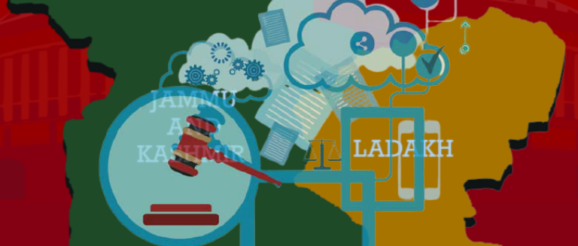Idea – Tweaking IT Act to Integrate J&K, Ladakh and North East & Bolster Economic Progress | CPO INNOVATION

Currently, the Act gives a two-year Leave Travel Allowance (LTA) window in a block of four years. This is primarily for the salaried people to avail the tax benefits. But what if the LTA component in the IT Act is tweaked to include ‘specified blocks of LTA’ as a concept to encourage tourism to the north-eastern region and J&K-Ladakh? The initiative, for starters, will accelerate growth in the said regions through tourism.
To explain this further, we need to first understand how LTA tax exemption claims presently work. LTA tax exemption can be claimed twice in a block of four years presently. The allowance can be claimed from one point to another through the shortest route. Furthermore, accommodation and food are not included in the ambit of the LTA exemption presently.
To encourage tourism to the north-eastern states, J&K and Ladakh, the government needs to revisit the LTA rules and tweak them. For instance, assuming a person’s career as a salaried employee spans from the age of 24 to 60. In the 36 years of service, the person will have nine blocks of four years each to claim LTA. If four of these nine blocks could be used to promote tourism to the said regions, the government can consider giving tax concessions to the Assessee. The remaining five blocks can be treated as per the existing tax rules. To avail the said concessions in the particular block, the Assessee has to travel for three years out of the four in a block to the specified regions.
This can be further improvised if the person does not have nine blocks left. In that case, proportionate blocks can be allowed if the age of the employee/assessee is below 56 years of age by February 2021. For individuals who are above the age of 56, one option can be given between the existing rules or the ones amended to facilitate tourism to J&K, Ladakh and north-eastern states. The option is extended till the individual reaches the age of 60.
Further, there should be a stress on all payments through the digital mode only. In such events, there is better transparency on the revenue generated. If the government is considering the concessions, it should also facilitate end-to-end travel, as opposed to the ‘shortest route’ caveat that is in force now. Further, if paid digitally, even accommodation and food should be reimbursed.
The system must not be limited to the salaried class alone. Even for professionals, whose vocations are regulated by bodies or guilds formed under the Indian Acts, should be given the benefit of tax exemptions under the LTA provided they declare their entire taxable income. Professionals like doctors, lawyers, journalists, chartered accountants, and others could avail of the benefits.
The overall deduction under the taxation system can be capped at 15 percent of the base pay + HRA for the salaried class. For the professionals, the same could be capped at 5 percent of the gross receipts in tax return, subject to an overall ceiling of Rs 1.5 lakh deduction in the tax returns for both classes of assesses.
The abovementioned measures will help motivate the taxpayers to spend their vacations in the north-eastern states, J&K and Ladakh and the revenue generated from tourism can be diverted to the regions instead of international destinations. The increase in tourism will, in turn, generate more direct tax revenue from these regions as well as excise duty from the sale of alcohol in the cold regions and other local taxes that will aid in the infrastructure development and maintenance, and the economic growth of the regions. In this entire exercise, the government will lose nothing but gain economic promotion and national integration. The money generated from tourism helps maintain the infrastructure in the hilly areas or the roads built to counter the Chinese onslaught in some north-eastern states. It can be generated internally by promoting tourism rather than allocating special outlays, and the funds that are saved in the outlays can be diverted to healthcare, defense, and other essential services. The exercise will also increase the connection between the people in the said regions and those from the mainland and lead to better integration of these regions with the mainland.
